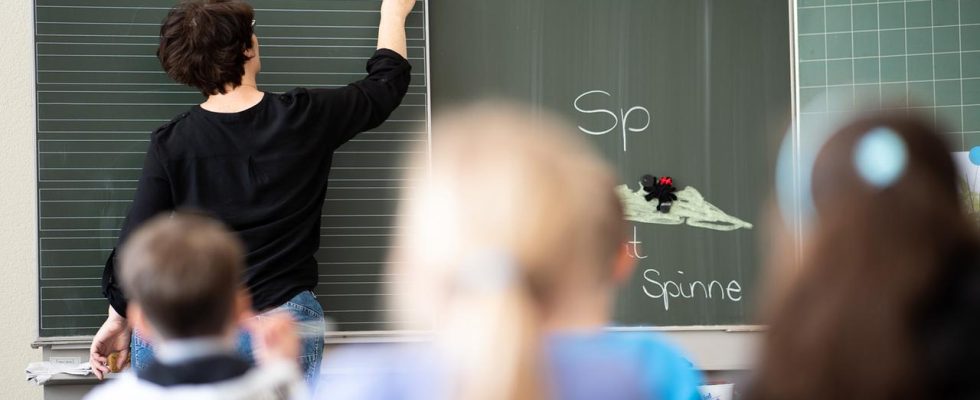According to a Bertelsmann study, the shortage of primary school teachers could soon be over. The reason is the falling birth rates – the need for teachers is also falling accordingly.
According to a forecast by the Bertelsmann Foundation, the shortage of teachers in primary schools in Germany could be significantly alleviated in the next few years. Because fewer children were born recently than up to 2021, the survey assumes that there will be an increasing surplus of teachers in the primary sector in the coming years.
By 2035, there will be around 45,800 more fully trained teachers available than are needed to cover teaching.
More scope for Quality improvements
However, a mathematical oversupply of graduates does not necessarily mean unemployment for educators, emphasize the study authors Klaus Klemm and Dirk Zorn. Rather, politicians are given the scope for quality improvements that is lacking today.
The experts recommend that teachers could be used to expand all-day offerings or to hire more staff at schools in socially difficult situations. They also suggest that primary school teachers also receive further training for use in the fifth and sixth grades.
With its estimate, the Bertelsmann Foundation deviates significantly from the forecast presented by the Conference of Culture Ministers (KMK) at the end of 2023, which estimated a surplus of 6,300 graduates in the primary level for 2035.
Falling birth rates
The turnaround in demographic development is responsible for this deviation: While 795,500 children were born in Germany in 2021, there were 738,800 in 2022 and, extrapolated to 2023, only 689,300, as it was said. This decline of more than 100,000 births means that the number of students will also fall more sharply from 2028 than assumed in the KMK forecast.
Fundamentally, forecasts like these are subject to a number of uncertainties. According to education expert Zorn, expected migration movements are included, but not “exogenous shocks that trigger large refugee movements, such as a new war and catastrophes.”
Bertelsmann Foundation
Addressing social challenges and having a lasting impact on society – that is, according to the Bertelsmann Foundation’s own statement, the goal. It was founded in 1977 by the Gütersloh-based entrepreneur Reinhard Mohn, then head of the Bertelsmann media group. According to the group, the foundation now holds more than 80 percent of the shares in Bertelsmann Verlag, which includes the RTL Group and Penguin Random House, among others.
For its studies, the foundation collects and analyzes data and ultimately makes recommendations for action to decision-makers. It works operationally, which means it does not support the work of third parties, but rather invests exclusively in self-initiated projects. According to its own statements, it serves the common good and is committed to the highest level of neutrality.
However, this neutrality has often been questioned in the past. Former SPD politician Albrecht Müller accused the Bertelsmann think tank of one-sidedly representing a neoliberal ideology and the interests of business. The journalist Harald Schumann analyzed that this would be reflected in the foundation’s relevant recommendations, which often aimed to design the areas of life examined more closely according to market economy competition criteria.
In addition, the foundation’s field of activity goes far beyond an advisory function, accused Frank Böckelmann, journalist and author of a book about the Bertelsmann Group. The foundation would have a direct influence on politics through targeted agreements.
However, the foundation denies any direct influence. “Our aim is to present studies that are technically and methodologically unassailable, and we can do that. But we also always have a clear standpoint from which we make suggestions based on the study results. We have no idea whether politicians will follow our suggestions influence,” explains Andreas Muhs, communications manager at the Bertelsmann Foundation.
Anja Braun, SWR, tagesschau, January 25, 2024 6:00 a.m

